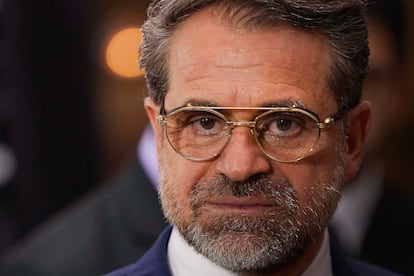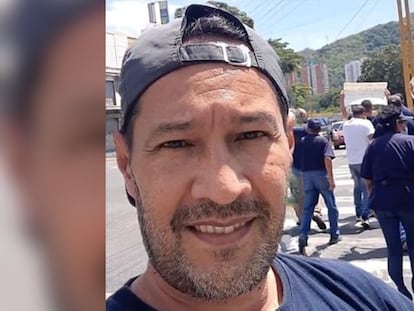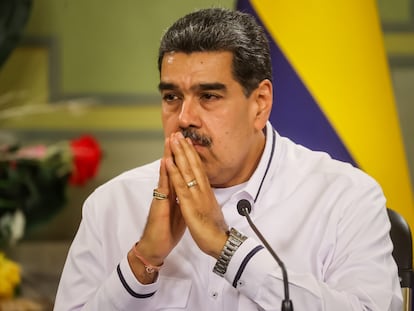Maduro envoy to Shanghai: ‘Venezuela is in a transition towards the Chinese economic model’
Rafael Lacava, a close ally of the Venezuelan president, met with leaders and businessmen in an official effort to realign Caracas’ interests with Beijing

A video has gone viral on social networks in which Rafael Lacava, governor of the strategic state of Carabobo and a member of the national leadership of the ruling United Socialist Party of Venezuela, as well as being a political cadre personally close to President Nicolás Maduro, appears in a meeting with Chinese officials and states the Venezuelan economy “is in a transition, which has the Chinese model as a reference.”
Lacava then affirmed that he traveled to Shanghai as a personal envoy of Maduro and added that “that is why [Maduro] has come [to China] so many times.” The flow of Venezuelan officials in China, he said, is a clear sign of its interest in developing a path of market socialism.
Lacava’s comments have had an impact on the local debate and seem to contribute to what is a relatively generalized impression among economic analysts: that the shift toward the market economy initiated by the Chavista government as of 2019 is here to stay, and that conflicts with capital, the takeover of companies, massive nationalizations, the workers’ government, and disproportionate controls on the economy have been shelved for another time. That is to say, the Hugo Chávez school of thought.
Although politically relations between both nations are excellent and Venezuela has taken care of accompanying all Chinese demands and concerns in the international arena — as Beijing has those of Caracas — in the economic sphere misunderstandings have been frequent.
Since the times of Chávez, China has lent Venezuela millions of dollars to finance development projects in oil, infrastructure, agriculture, and industry, under the promise of guaranteeing technology transfer, which to Beijing’s irritation have evaporated in the framework of the systemic corruption of the Venezuelan government.
One of the most eloquent examples of this mess is the case of the so-called “Chinese Fund,” an agreement reached by Chávez with former Chinese president Hu Jintao to create a revolving account destined to finance diverse development projects, and which in the long run has become one of the best-known corruption cases of the many carried out by Chavismo-Madurismo.
Several sources have also leaked that various Chinese officials have complained to Maduro about the disorderly and wasteful management of the resources provided during this time. Venezuela’s debt with Beijing — in particular, that of state-owned oil company PDVSA — is enormous.
Because of these experiences, Beijing has closed off its lines of credit to Caracas. For various reasons, the Chinese oil companies present in Venezuela, both private and public, had reduced their operations in the country to a minimum, and these are only now being reactivated.
Within the power structure of the ruling party, Lacava, a flamboyant governor who has become one of the most effective public managers in the Chavist apparatus, has always been viewed with suspicion by the statist, anti-business and communal revolutionary orthodoxy expressed by leaders such as Diosdado Cabello: the so-called “original Chavismo.” Although he has internal detractors and is criticized unceremoniously by the opposition on social networks, Lacava has been occupying spaces of power by virtue of his electoral influence and his personal loyalty to Maduro.
“I think this is an economically oriented statement, which does not necessarily have an impact on political decisions,” says economist and academic Leonardo Vera. “The case of the special economic zones that Maduro has presented is a good example. China has been a fundamental ally of Venezuela for 15 years, and the cooperation proposed at this moment consists of opening the way for its businessmen to invest in Venezuela, but I don’t think there is money, nor loans, for electoral proselytism purchases. The Chinese have lost a lot of money in Venezuela, they have failed, their investments are at a low ebb, and they will hardly use the local experience as an example.”
Sign up for our weekly newsletter to get more English-language news coverage from EL PAÍS USA Edition









































